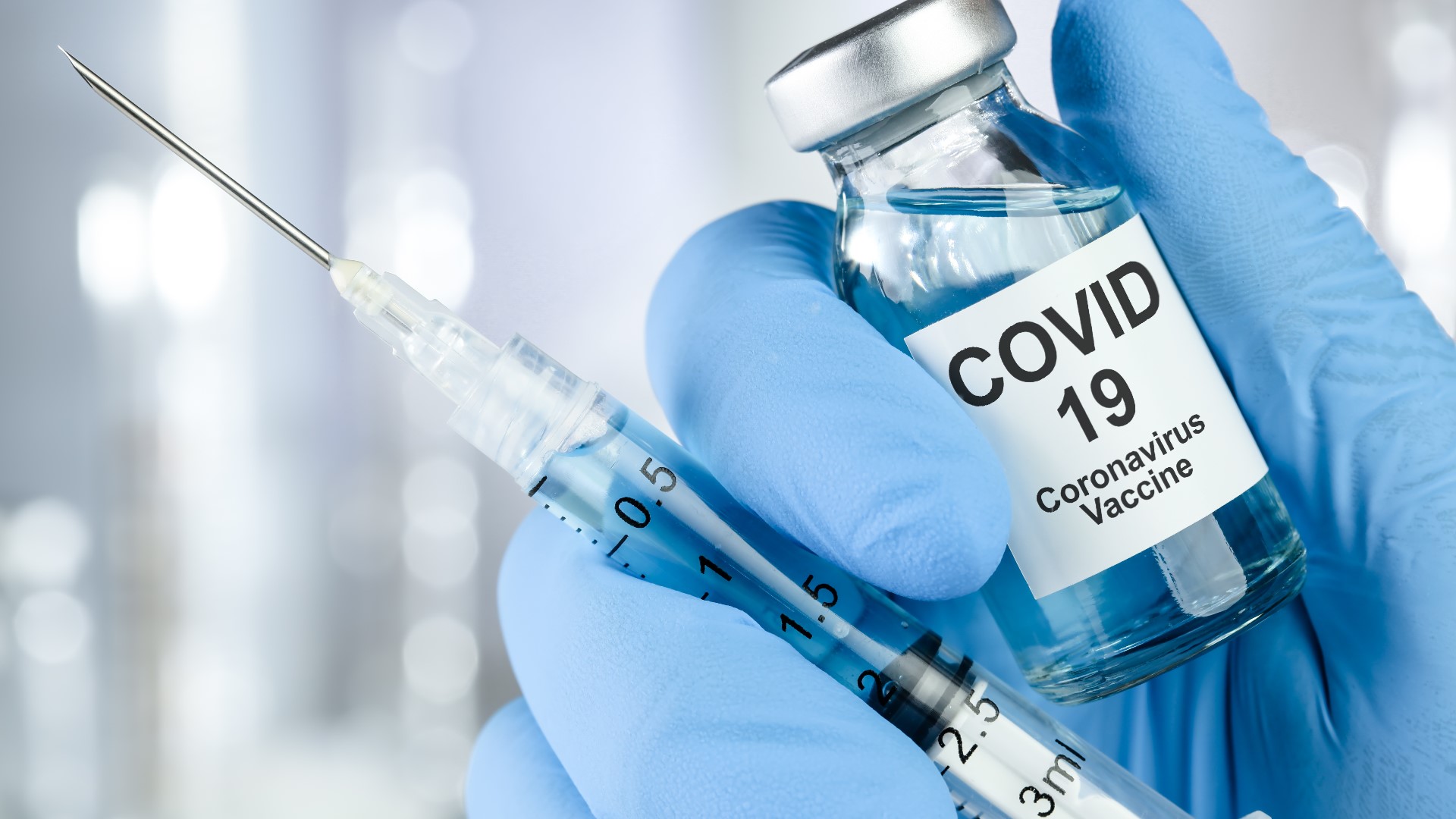COLORADO, USA — Doctors are still trying to figure out why people have different responses to the COVID-19 vaccine. Some get flu-like symptoms, others do not feel anything.
Generally, there are precautions you can take to set your body up for success.
We got some advice from 9Health Expert Dr. Payal Kohli and UCHealth's Medical Director of Infection Prevention Dr. Michelle Barron.
DO: Eat a good meal and drink lots of water
“You want to follow your normal routine of making sure you’ve had something in your tummy and you’ve had something to drink,” Barron said.
DON’T: Take Tylenol or Ibuprofen before
“Some people had the notion of taking Tylenol or Ibuprofen ahead of time so that they wouldn’t have fever or body aches [after their shot], but that’s not been recommended, and actually we recommend avoiding that only because they could dampen some of your immune response," Barron said.
"If you take those [medications] normally, it’s probably fine. I wouldn’t take them in anticipation [of the vaccine], trying to pre-medicate the potential side effects that may not even happen."
Taking the mediations after your shot should not be a problem, according to Barron.
DO: Limit alcohol consumption
"It really depends on what your baseline level of alcohol consumption is," Kohli said. "So, if you’re somebody who drinks a little bit all the time, probably drinking how much you usually drink is not going to substantially affect your immune system. But in general [if you avoid alcohol], the happier your immune system is going to be, and the more ready it’s going to be to make those antibodies to make that vaccine.”
Kohli tells her patients to abstain from alcohol two to four weeks before their COVID-19 vaccination to be extra cautious about the effects on their immune system.
Generally, Barron said she has not seen an issue with light consumption the night before.
"Obviously, we recommend drinking alcohol in moderation, and if you have no reason why you can’t have a glass of wine or cocktail the night before you get your vaccine, it’s totally fine," she said. "There’s no issue with that.”
DON’T: Exercise rigorously
“Exercise in a moderate amount is actually good for boosting your immune system," Kohli said. "Now, if you do too much exercise, you can actually suppress your immune system, because too much exercise stimulates a stress response in the body.”
DO: Talk to your doctor if you’re taking medication for an autoimmune condition
“People who have autoimmune conditions, or those who are taking medications that can chronically suppress their immune system, should they get the vaccine? Absolutely yes, they should get the vaccine," Kohli said.
"The American College of Rheumatology has very specific recommendations on specific medications... So, I would recommend, if you are on any such immune-modulating medications or you have autoimmune conditions, you want to talk to your doctor about what is the best way to get your body in shape for that vaccine.”
Again, talk to your doctor before doing this. DO NOT take yourself off medication without professional consultation.
“Keep in mind, if you discontinue these medications, you could potentially increase your risk of having a flair of whatever condition you have: lupus, rheumatoid arthritis, or whatever other underlying condition you’re treating," Kohli continued. "That’s why you have to carefully manage these with your doctor.”
DON’T: Get other vaccines for a period of time
"There’s nothing to say that something bad will happen," Barron said. "It’s not life-threatening. It’s not something that’s dangerous. It’s just we don’t know how they’ll interact with each other, so sometimes one vaccine can cause the other to have more symptoms from it.”
“You want to make sure that you don’t get any other vaccination for at least two weeks before you get the COVID-19 vaccine," Kohli added. "You also want to make sure you don’t get any other vaccination in between the first and the second shot of the vaccine, and then similarly for two weeks after.”
DO: Continue precautions
“You are not allowed to suddenly throw away your masks and have a big party after you get your vaccine," Barron said. "We are not there yet.”
DON’T: Get a vaccine if you are COVID positive or have been exposed
“It’s not that the vaccine is going to harm you, you just don’t want to infect everybody that’s getting their vaccines," Barron explained. "It takes two weeks from the second dose to be fully effective, so you could really infect people that are coming in and getting their vaccine. If you are in isolation or quarantine, wait until you’re done with that time frame that’s been recommended. Even if it’s a drive-through vaccination site.”
“A lot of people are getting COVID in between the first and second dose of the vaccination, and that could affect when you get your next dose," Kohli added. "It could change the timing of when doctors might recommend that you go and get your booster shot.”
DO: Watch your symptoms after vaccination
Kohli said arm pain can last five to seven days.
Flu-like symptoms can usually last 48 hours, according to Kohli. Contact your doctor if those symptoms persist.
You can also track your symptoms on the Centers for Disease Control (CDC) V-Safe online health tracker to monitor your symptoms and get text message check-ins daily, then weekly.
"You can tell CDC if you have any side effects after a COVID-19 vaccine," the CDC website says. "This information helps CDC monitor the safety of COVID-19 vaccines in near real-time. If any serious health problems are reported, they can be quickly investigated by CDC’s medical experts and scientists."
Have another question? Use the form below to submit your vaccine-related questions or story ideas.
SUGGESTED VIDEOS: COVID-19 Vaccine

